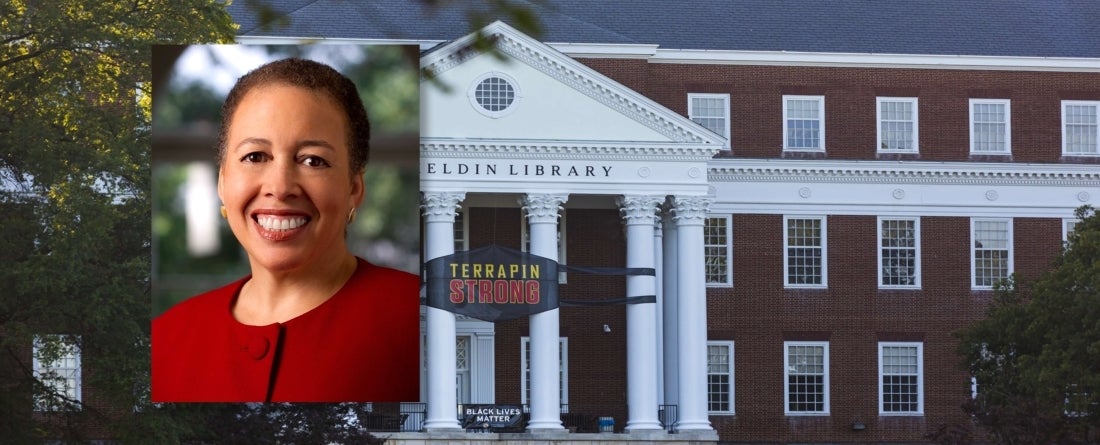
When events in the summer of 2020 centered racism in American in the public eye, you may have seen a number of antiracist reading lists circulating — a staple among them was “Why Are All the Black Kids Sitting Together in the Cafeteria? And Other Conversations About Race,” a look at how shared experiences help to shape our identities. And while last year’s events ignited the national conversation on antiracism, there is still work to be done, says Beverly Tatum, the book’s author and president emerita of Spelman College. That work, she says, requires leadership.
This was the topic of the most recent Norman and Florence Brody Family Public Policy Foundation Forum at the School of Public Policy. Led by Tatum, and Robert C. Orr, dean of the School of Public Policy, the discussion included current events, leadership, and changes needed at the institutional and personal level to continue progressing toward a more just society.
Before her role at Spelman College, Tatum described herself as a "reluctant leader" and had little interest in leadership. However, after writing two popular books, “Why Are All the Black Kids Sitting Together in the Cafeteria? And Other Conversations About Race” and “Assimilation Blues,” she felt like she needed a new challenge. The opportunity to apply for a deanship at Mount Holyoke College was a new challenge in which she could help create change.
"I really did enjoy being the dean much more than I might have anticipated," explained Tatum. "What I discovered is that there's really a lot of creative opportunity in that kind of leadership, to really shape programs and begin to have an impact on an institution, and I really enjoyed that."
For Tatum, a leader needs to follow up on theory with action to promote change. Alone, talking about racism is not enough.
"It became clear to me that you had to talk about the 'now what' part,” explained Tatum. "If you understood what racism was and then didn't talk about what could be done about it, your students would just leave the course depressed."
As a part of her institutional work, Tatum also spoke to the importance of Historically Black Colleges and Universities (HBCUs) and their role in uplifting and connecting black students with other leaders of color, like those of Spelman alumni like Stacey Abrams, Janelle Jones and Rosalind Brewer.
"The fact of the matter is that HBCUs have been a crucible of leadership in the United States for many generations, and that continues to be true," Tatum said. "There are very few places where a young, black woman can say this place was built for me specifically."
Tatum explained that just institutional changes should not constrain anti-racism efforts. Work needs to be done at the personal level as well.
"We all have been impacted by the racism in our society, and the systemic nature of it of course means that we are sometimes participating in it even when we don't think we are," said Tatum. "All of us have important personal work to do. We can't always wait. In fact we shouldn't wait."
Tatum ended the conversation with a discussion on changes made at colleges, universities and other institutions to address racism. She explained that everyone has a sphere of influence, whether it's as a leader at an institution or just in your neighborhood, using that influence to speak about racism will influence someone, which will eventually lead to a change in policies that have disparate impacts.
"We can't solve a problem unless we can talk about it. So not talking is just perpetuating the status quo," explained Tatum. "If we want to bring about change, we have to engage in conversation. You can't really take action effectively unless there's been some conversation to start."
